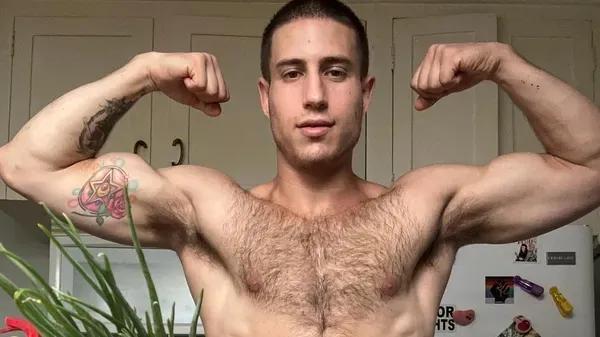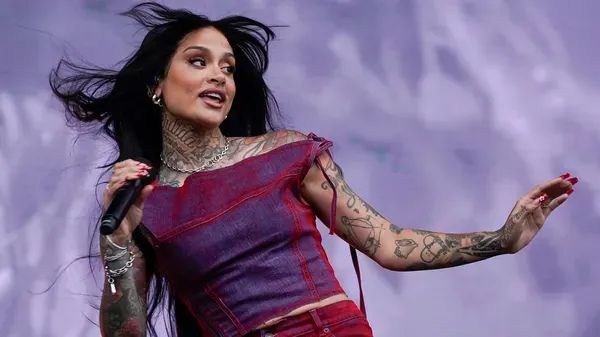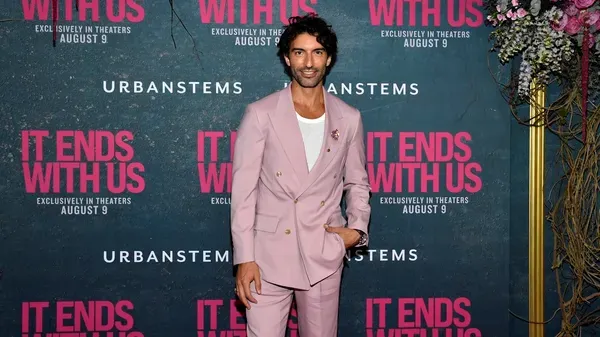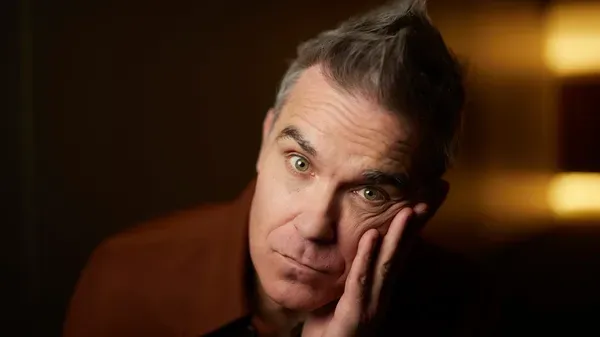March 31, 2015
'Hide & Seek' :: Husband and Wife Filmmaking Duo On Their Sexy Foursome Movie
Kilian Melloy READ TIME: 13 MIN.
Director Joanna Coates and actor/producer Daniel Metz are a team in work and in life. A married couple, the two have co-written a feature film that's sure to bring some buzz to the Boston LGBT Film Festival, a modern fairy tale of sorts titled "Hide & Seek."
The film has already met with acclaim, taking the Michael Powell Award for Best British Feature in 2014 at the Edinburgh International Film Festival. Though this is Coates' first feature-length dramatic work, following up on her 2011 short "Where Are They Now?" and 2013's "Little Ones," the director -- who also has made documentaries -- has already commanded serious notice, with her work having garnered BAFTA nominations. (BAFTA, the British Academy of Film and Television Arts, is the UK's equivalent of the Oscars.)
Daniel Matez, Coates' American-born husband, has appeared in the films such as Andrew Bujalksi's much-lauded 2013 feature "Computer Chess." Among his other productions is the feature "Slacker 2011."
"Hide & Seek" takes a close look at what happens when four twenty-somethings retreat from life at large and take up residence in a big old house in the country. There are two boys (played by Metz and Josh O'Connor) and two girls (played by Rea Mole and Hannah Arterton), and they are determined to create a pocket of breathing room for themselves in a chaotic world – an oasis where they are free to explore themselves... and each other... in all ways, including sex and intimacy.
If this is indeed a sort of contemporary fairy tale, the sexual parts are necessary and germane. The fairy tales of yore were often parables that talked in thinly-disguised ways about the terrors of maturity: Responsibility, temptation, and erotic attraction among them. For the four young people in the film, those terrors appear to loom large, and their experiment in communal living seems, in that context, a rational response.
As the film continues, issues of jealousy arise; an outsider (Joe Banks) strays into their midst briefly, causing some tumult; and nightly games such as role-playing, life drawing, and home-made theater provide free-form entertainment. There's a sweetness about the film, but also a real edge, and its sunny colors are periodically darkened by fearful and anxious hues. That is, of course, what it's like to be young; in "Hide & Seek," audiences will find a novel and sympathetic portrait of innocence and discovery that's not quite like anything else.
EDGE had the chance recently to chat with Coates and Metz, catching them in the midst of a busy schedule. Here's what they had to say about creating, casting, and guiding the production of the film.
EDGE: Daniel, Joanna, thanks so much for taking the time to chat!
Daniel Metz: Thank you so much for taking the time to talk to us. I grew up in Melrose, so I'm particularly happy to be screening in my hometown.
EDGE: First off, I have to say how startled I was at how the film mixed innocence and youthfulness with boldness. There are some kind of wild passages in the movie, but I think there is also a sense of restraint. How did you go about working out the story, both textually and visually? Did the finished product depart much from your original vision?
Joanna Coates: A mix of restrained and wild moments was always important to me, and was part of the original vision. It is pretty instinctive, but I always wanted to create a fairly austere space, within which dynamic moments and feeling could blossom. I think you need both, or else the film is in danger of collapsing into something too simplistic.
Working out the story, we passed drafts between us, which mapped out the basic story. The main guidelines for bringing it to life were to visually make a space that was 'real' but at the same time, infused with the characters' imaginative excitement.
EDGE: What went into the casting of the film? What sort of chemistry were you looking for?
Daniel Metz: We always wanted the film to feel true and living, so it was very important for us to have actors who brought a lot of themselves to the film, and made themselves vulnerable. We pushed the actors in the casting to imagine themselves in the situation, to really find what would motivate them into this world and what kind of expectations they would have.
One of the more interesting exercises we did while casting was that we asked the potential actors to pack a suitcase as if they were really going to this place; the objects, outfits and other keepsakes were very illuminating about the performers, and some even made it into the film.
Joanna Coates: As far as chemistry goes, we did try to balance the group so we had distinct characters, but then the fun of the process after that is actually seeing what effect the actors and characters have on each other -- something you can shape but not totally control. That unpredictability was really important. Also, the truth was we were all young and starting out, for most people it was their first feature film and so there was a communal sense of excitement in the air.
EDGE: The film doesn't get much into the back stories of the characters, and I think there's even one point at which one of them says they shouldn't talk about their pasts -- they should simply embrace where they are now and go from there. That frees the film, in a certain way. It also fits the film's general sense of being a modern fairy tale -- which is how I tend to see it. Or am I missing the point?
Joanna Coates: No, that is exactly the point! It is about the moment, about gestures in space, about isolating feelings and moments to see them with some clarity, and I think there is something beautiful about creating a space on screen where you can watch characters emerge in front of viewer's eyes without 'information' that tells you how to read or judge them. Biography isn't character, and it gets used in a lazy way too often.
Daniel Metz: The film is about characters that are creating something new, they are attempting to be free from all of the things that they perceive as hurtful or detrimental to a full and open life. You're right to call it a fairy tale, as it is a fantasy of what things could be like in this hypothetical world. For the characters, they're trying to live in the moment. It's a film about the present only, there's no future and they're trying, desperately, to shed the past. It only felt fair to keep backstories and justifications out of it, to reflect that strict adherence to the present.
EDGE: I have to ask about the title, "Hide & Seek." It evokes a sense of childhood and play, and the four characters in the film are very childlike in some ways. But the title also nods to the idea that they have hidden themselves away in the house they share in the country. Are they running from adulthood and responsibility?
Daniel Metz: Yes, the title has a double meaning. On one hand we're trying to bring up the childhood game, and therefore the sense of play and wonder that the film represents. After all, a big part of the film is about a group of twenty-somethings who play and perform and generally tap into an un-cynical view of life where pleasure is pursued without fear of societal judgment. On the other hand, we're thinking about "hiding" and "seeking" in an emotional sense, as the characters are hiding from the world and seeking alternative ways to be happy.
I wouldn't say that they are strictly hiding from adulthood and responsibility. I think they're hiding from things that hurt them. I think they're hiding from expectations that don't make them happy. They're hiding from urban-life, they're hiding from monogamy, they're hiding from the pressures that tell them they have to be one way or another. Some of these things could be interpreted as "adulthood" or "responsibility," but then again, some things that we associate with "responsibility" are fucked up.
Joanna Coates: I think it's really important to look at what is expected of people and question it – what is expected of adults (morally dubious 'proper' jobs, being part of an exploitative system) is not something to celebrate at all, yet that questioning, that looking for alternative answers has become really threatening to some people.
There is also a really quite sinister strand of thinking that I see in many areas (from "liberal" and conservative voices) which is against pleasure, which is quite fundamentalist and puritanical, and we wanted to kind of challenge that. People exploring themselves peacefully (even if it is solipsistic and selfish) is not morally as indefensible as being a cog in a revolting company that for instance promotes indentured labour, or massive economic inequality yet so many people's moral compass is so skewed and indoctrinated that they can't quite see that. I like stirring that up.
The other side to that is that these characters are not saints – they are self-involved and on a very inward-looking quest, and that is definitely something that raises uncomfortable questions. Why do they feel this is the only meaningful thing they can do? They might not have the right answers, but allowing them the space to ask questions is important.
EDGE: Another fairy tale aspect of the film was how the four characters didn't seem to have jobs. How did they manage? Weren't they going to get bored without some meaningful work? But then again, we never saw them doing any chores, though we know they did take turns at things like cooking.
Joanna Coates: Yes, it isn't a realist film. Those questions will never be answered as it isn't a manual for outsider living, but a symbolic "what if?" I agree, boredom is a threat, which is why the characters are pushed back onto their own resources for entertainment – that is where some of the dynamism of the film comes from, that they need to make their own meaning and think for themselves to fight that boredom. In terms of "meaningful work" – yes some people are lucky enough to find that, but work itself is an orthodoxy that most of us are trapped in, it isn't a "natural state," and the suggestion that without it we are lost is pretty oppressive. Finding meaningful ways to spend your time and not exploiting others is laudable – how many people's work really does that?
Daniel Metz: It's also like a philosophical problem – the film proposes a possible world, one where work isn't necessary for these characters, all of the food they need is provided for, where they have this giant house, where whatever whimsical prop or costume they need just shows up, where all of the conditions are met to the best possible scenario, so that we can explore these questions without being hindered by practicalities that don't really matter. And then, looking at this, it should raise a question: why do we need to position this story as a fantasy? Why is this kind of life a fantasy?
EDGE: If they are hiding, of course, the title also suggests that they are seeking. What, though? Some other model of family or community? Do they simply want (as young people often do) a different way of living to what they have seen their parents doing?
Daniel Metz: They are seeking happiness, as we all are. For them, they've put forward a few principles for happy life, essential human needs: love, sex, fun, intimacy, companionship, beauty, peace, creativity, freedom. They are seeking ways to live in these states while avoiding everything that takes away from them. So they are seeking a world without distraction, without technology, without cynicism, without prejudice, without news. It isn't easy, and they're constantly failing, but it is their project to get as close to it as possible.
EDGE: I imagine that some people might see "Hide & Seek" as a celebration of polyamory, but I had the sense there was something more going on. It's more like a sexual democracy – everyone sleeps with everyone else, and they even have a schedule drawn up for who is going to share the "marital bed" with whom!
Daniel Metz: I think polyamory seems to be a pretty broad term that embraces many different lifestyles. These characters are polyamorous in a literal sense, yes, and I think they're also fighting against the downsides of monogamy and restricting your sex life to one gender. They're trying to be open completely, and for them that means sharing themselves with everyone.
But then for them it's enforced, it's on a schedule. This was something built into their system to ensure that coupling wouldn't happen, that no one would be left out, and that each permutation of pairs would have equal time to grow.
Joanna Coates: I think they are looking for "happiness," though that is so slippery and hard to define that it's almost absurd. They want emancipation, and, most importantly they want a sense of permanence. Although it is especially hard to create that sense of permanent stability in modern life, [impermanence] is also a real condition of existence. Things will decay and end, and finding ways to rebel against that, in a secular way, is noble, utopian. Even if it just a series of hopeful gestures, that is moving to me.
EDGE: Daniel, you're in a pretty explicit scene opposite co-star Rea Mole. That scene felt artistically important and bold. Did it make things easier or harder that the director is your wife?
Daniel Metz: I'm really glad you felt it was important and bold. I think it's essential and it definitely feels like the most vulnerable that I got as an actor. These things were part of the process from the beginning, so Joanna and I were always on board for what they entailed. Was it easier or harder having Jo there? I don't really know, because I've never done sex scenes for any other director! I think it affected things in both directions – doing things in front of my partner made me hold back in some ways, while also I had absolutely no issues with exposing that part of myself in front of her... But really, the most important thing to say is that when we were shooting that scene, and all of the intimate scenes for that matter, it felt very much like the crew was not present, Joanna included, because we as actors were so completely in the moment. Working with such a brilliant actress like Rea Mole, I wasn't thinking at all about the practicalities of the film, I was just my character confessing my feelings to her.
EDGE: Joanna, was it a tough day on the set to see your husband in that role?
Joanna Coates: Ha, no, the tough part was us just bickering about silly things because we were so tired! The sex scenes were so thought-about and prepared-for that they didn't make things difficult. Our [Director of Photography, Ben Hecking] was also a great presence on-set, and helped people feel comfortable enough to let go in a trusting way.
EDGE: Let's project what lies ahead for the four characters in, say, six years. Will they have paired off? Will they have kids? Will they have grown up? Is it even quite proper to ask that question of a film that asks us to live in the moment?
Daniel Metz: I actually don't view the narrative as finite, so I think the film could go on and on, or in fact the film could have been about different periods in their experiment. The film as it is ends with some fear of coupling off, but I think they were learning to deal with that, to try to avoid that and to look at that as something organic that will change over time. Certain relationships would wax and wane over the years, hopefully in an equal way. I'd like to think that they'd build an atomic bomb and start blowing up major cities.
EDGE: LOL, don't say that too loud! What new projects might you be planning?
Daniel Metz: We've got a few things in development right now, some intimate stories with really bold and exciting elements. One we've been describing as "Antichrist meets Spring Breakers in Africa." Also, we'd really love to do something in America soon, perhaps a story about my childhood!
Joanna Coates: And also a story about voyeurism and boundaries, set in a city. There are lots of fun things to explore with a more female POV changing the roles of watcher/watched.
Kilian Melloy serves as EDGE Media Network's Associate Arts Editor and Staff Contributor. His professional memberships include the National Lesbian & Gay Journalists Association, the Boston Online Film Critics Association, The Gay and Lesbian Entertainment Critics Association, and the Boston Theater Critics Association's Elliot Norton Awards Committee.







